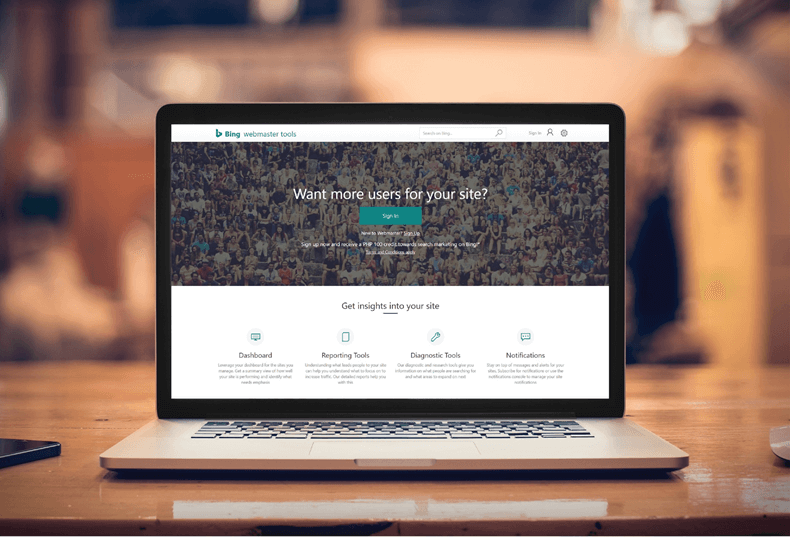
If you tend to keep up with SEO and search trends, then you know that almost everything focuses on Google. And why not? Google is by far the largest search engine, snagging about two-thirds of all searchers.
Two-thirds is a lot, but do you notice what’s missing there? If you remember what you learned about fractions, it’s not that hard.
Got it?
That’s right! One-third of all searches aren’t using Google.
And yet, amazingly, most businesses aren’t thinking about other search engines at all! They remain laser-focused on Google.
That’s good news for you, because it means that by taking other options into account, you can get a leg up on your competition. Sounds pretty good, right? So, let’s talk about it.
If not Google, who?
That’s probably what you’re wondering. You might think that that elusive 35% is split among several search engines. That’s right – but it’s also wrong.
You see, as of 2015, Yahoo made a deal with Bing. Approximately 51% of all Yahoo searches use Bing. And, since Bing and Yahoo are responsible for about 35% of all search traffic, that means that optimizing for Bing can help you capture people you might miss by thinking only about Google.
Bing and Google have a lot in common. But, if you search one of your keywords and compare the SERP, you’ll notice some differences. Addressing those differences can help you stand out from your competitors.
The key is to do it without messing with your Google rank.
Before we walk through how you can optimize for Bing searches without affecting your Google rank, let’s talk about the main advantages of optimizing for Bing.
- You’ll face less competition than on Google. Remember, most businesses aren’t thinking about their Bing rank. That means if you take the time to optimize for Bing, you can outrank your competition and grab the lion’s share of traffic from Bing searches.
2.Traffic from Bing has, on average, a higher conversion rate than traffic from Google. It’s hard to quantify the reasons for the difference, but it may be that Bing users tend to be older and more affluent than Google users.
3.Bing is much more open about their ranking factors than Google. Instead of guessing about what will help your site to rank, you can simply refer to what Bing has said about it and optimize your site accordingly. In other words, they’re pro-SEO.
These things point to a clear opportunity for business owners who want to find a low-cost but effective way to attract more traffic.

Now, let’s talk about what you can do to improve your rank on Bing. Many of the things that work for you on Google will also work on Bing. The trick is to tweak your SEO just a bit, so your site maintains its Google rank and moves up on Bing.
The first step is to make sure your site is properly indexed on Bing. If it’s been around for a while it probably is, but if your site is new, it may not be.
Start by doing a search for site:www.yoursite.com on Bing. That will show you how many of your site’s pages have been indexed.
If they’re indexed, you can move on to the next step. If they’re not, you should go ahead and submit your site here.

Next, tell Bing how frequently to crawl your site. If you look at Bing’s Webmaster Tools, you’ll notice that the default setting is standard. That’s fine if your site is static; but, if it’s large or you update it frequently, you should dial up the crawl rate for the best results.
Bing has only a 1% tolerance for dirt in your sitemap. That means if you want your rank to improve, you’ve got to clean it up and submit it. You can do it on your Webmaster Tools page.
Another option is to include a link to your sitemap in your Robots.txt. However, the benefit of doing it through Bing is that you’ll get error messages if there are problems with your sitemap. That means you’ll be able to clean them up as you go.
If you know anything about Google, you know that LSI and context are nearly as important as keyword use. That’s not the case on Bing. They put a higher premium on exact keyword matches than Google does.
Fortunately, this is a change you can make without hurting your Google rank. You’ll want to increase your keyword density a bit, but not so much that it affects the quality of your content.
Using those same keywords in tags – the title tag is hugely important on Bing – is essential, too.
Bing pays a lot of attention to user behavior. If users click your site and then hit the back button, it will affect your Bing rank.
You can check your CTR and bounce rate on Bing from your Webmaster Tools dashboard.
Google tends to place more emphasis on the quality of backlinks than the number of them. Bing does the reverse.
You can’t disregard the quality of your backlinks without negatively impacting your Google rank. But, by adding additional backlinks, you can positively impact your Bing rank.
It’s also a good idea to do what you can to improve the quality of your anchor text in your backlinks. Don’t overdo it – that can hurt you with Google – but contacting a few webmasters to ask them to use keywords in the anchor text can help you with Bing.
Unlike Google, Bing comes right out and says that social signals have an impact on the SERP. That means anything you do to boost your social media impact will help you with Bing.
The best way to capitalize on this is to monitor your social signals, attract new followers, and do whatever you can to amplify your reach on sites like Facebook and Instagram.
By taking a few simple steps to boost your Bing ranking, you can out-maneuver your competition. When you think about it, it makes no sense to simply ignore a third of all searches – so stop doing it and give Bing the attention it deserves!
